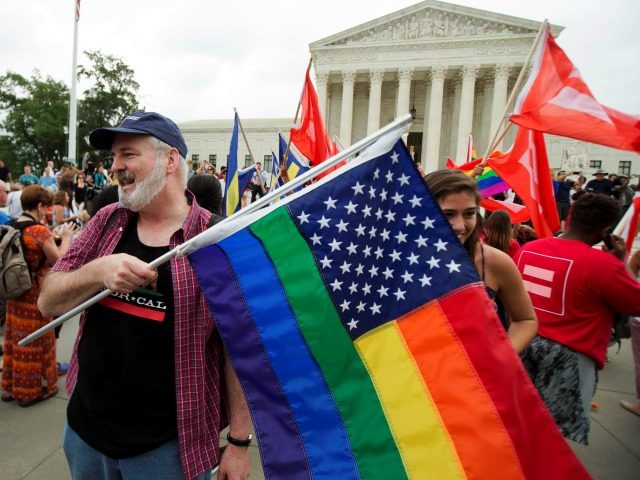A Texas Supreme Court Justice has issued a dissenting opinion stating that while the U.S. Supreme Court has declared that same-sex couples may marry, the U.S. Constitution does not necessarily require cities to offer benefits to same-sex spouses of employees. While marriage may be a fundamental right, spousal benefits are not. He says that the same constitutional strict scrutiny does not apply to employment benefits.
Justice John Divine issued a dissenting opinion to the Texas Supreme Court’s denial of the petition for review in the case of Jack Pidgeon and Larry Hicks v. Mayor Sylvester Turner and City of Houston.
The decision by the state’s highest court to not review the lower court’s decision, let stand a ruling that cities cannot deprive married same-sex couples the benefits it provides to opposite-sex couples. Devine disagreed with his colleagues and wrote that the court should have heard the case.
“Marriage is a fundamental right. Spousal benefits are not,” Devine wrote in his dissent from the denial of the petition for review. “Thus, the two issues are distinct, with sharply contrasting standards for review.”
The lawsuit was brought by two Houston taxpayers prior to the U.S. Supreme Court’s opinion in Obergefell v. Hodges. The decision granted same-sex marriage rights across the country. The Houston lawsuit was aimed to stop cities like Houston, from granting employee benefits to same-sex couples who were married in a state that recognized gay marriage when Texas law did not. The trial court ruled in favor of the plaintiffs and granted a temporary injunction blocking the City’s actions.
The Obergefell decision was issued prior to the Court of Appeals hearing and was cited by the Court as it overturned the trial court’s injunction.
In his dissent, Devine wrote:
Obergefell concerned access to marriage, not an Equal Protection challenge to the allocation of employment benefits. The court of appeals apparently assumed that, if the Supreme Court concluded no government interest justifies recognizing marriage as only between couples of the opposite sex, then no interest justifies offering different benefits to same-sex and opposite-sex spouses of City employees. But, as discussed below, marriage—not spousal employment benefits—is a fundamental right, and laws limiting access to a fundamental right receive stricter scrutiny than laws distributing government benefits. As the majority in Obergefell recognized, ‘the Constitution contemplates that democracy is the appropriate process for change’ when fundamental rights are not at stake.
Justice Devine continued:
(C)laims by same-sex spouses of City employees to employment benefits do not enjoy the benefit of strict scrutiny. Indeed, in Romer v. Evans, the Supreme Court considered whether a law denying special protections to homosexuals had ‘a rational relation to some legitimate end.’
Devine urged that the state has an interest in encouraging procreation and that offering benefits to opposite-sex couples would encourage procreation within marriage.
After all, benefits such as health insurance provide financial security as couples decide whether to have a child. An opposite-sex marriage is the only marital relationship where children are raised by their biological parents. In any other relationship, the child must be removed from at least one natural parent, perhaps two, before being adopted by her new parent(s). This does not diminish any child’s inherent dignity, a fact the City presumably recognizes by extending benefits to their employees’ children regardless of the employees’ marital status. But it does explain why the State might choose to direct resources to opposite-sex couples.
Devine concludes his 11-page dissent stating:
Texas, as it allocates benefits to employees’ spouses, may recognize the differences between same- and opposite-sex spouses. To withhold this decision from the people is to undermine precedent, democracy, and the limited role of courts in our nation. It bears repeating that the Supreme Court in Obergefell embraced ‘democracy [as] the appropriate process for change, so long as that process does not abridge fundamental rights.’ I would take the Court at its word. Because the court of appeals did not, I respectfully dissent to the denial of the petition for review.
Lana Shadwick is a contributing writer and legal analyst for Breitbart Texas. She has served as a prosecutor and associate judge in Texas. Follow her on Twitter @LanaShadwick2.

COMMENTS
Please let us know if you're having issues with commenting.